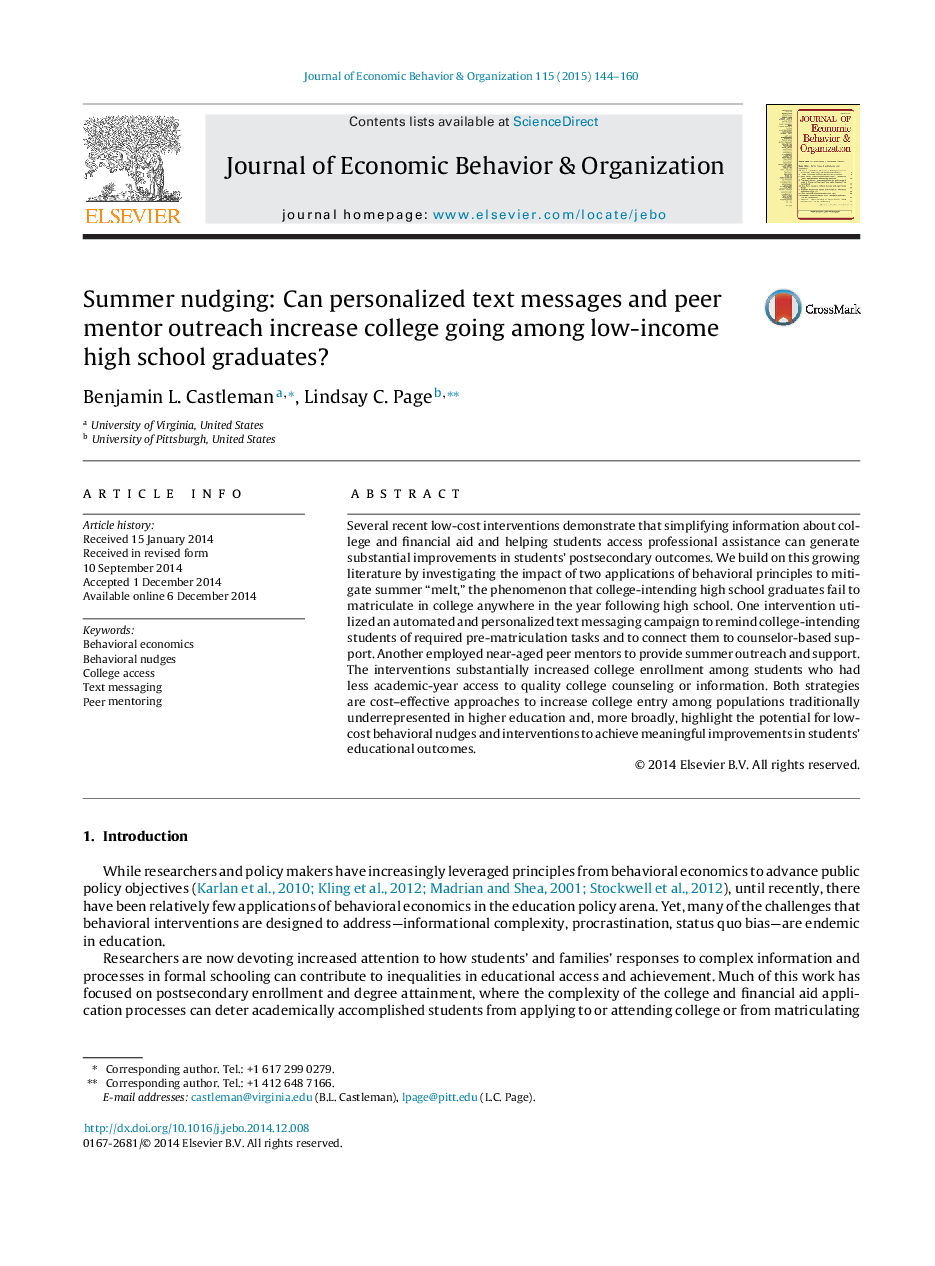| Article ID | Journal | Published Year | Pages | File Type |
|---|---|---|---|---|
| 7243195 | Journal of Economic Behavior & Organization | 2015 | 17 Pages |
Abstract
Several recent low-cost interventions demonstrate that simplifying information about college and financial aid and helping students access professional assistance can generate substantial improvements in students' postsecondary outcomes. We build on this growing literature by investigating the impact of two applications of behavioral principles to mitigate summer “melt,” the phenomenon that college-intending high school graduates fail to matriculate in college anywhere in the year following high school. One intervention utilized an automated and personalized text messaging campaign to remind college-intending students of required pre-matriculation tasks and to connect them to counselor-based support. Another employed near-aged peer mentors to provide summer outreach and support. The interventions substantially increased college enrollment among students who had less academic-year access to quality college counseling or information. Both strategies are cost-effective approaches to increase college entry among populations traditionally underrepresented in higher education and, more broadly, highlight the potential for low-cost behavioral nudges and interventions to achieve meaningful improvements in students' educational outcomes.
Related Topics
Social Sciences and Humanities
Economics, Econometrics and Finance
Economics and Econometrics
Authors
Benjamin L. Castleman, Lindsay C. Page,
